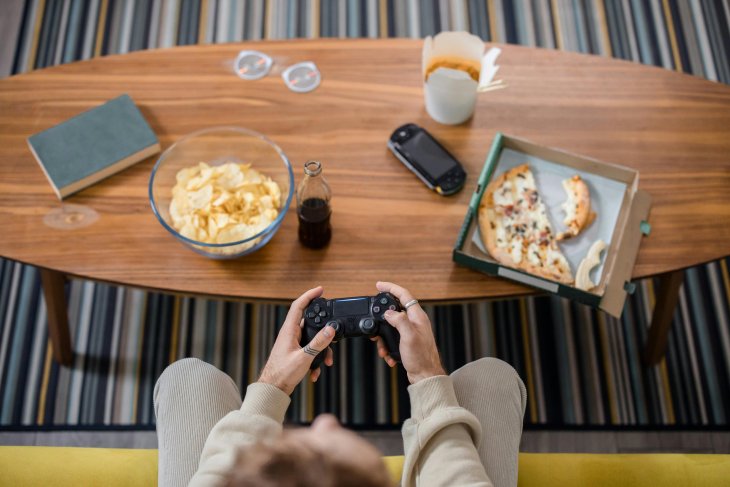California has a vast number of seniors and those numbers keep rising. It also has thousands of care facilities, but the risk of bedsores is a huge concern even though caretakers should prevent them. Bedsores are unfortunately especially common in nursing homes and people who have issues with mobility.
Of course, there are ways of treating bedsores, but the best thing would be to prevent them from happening in the first place. Again, there are ways to do that, too, but the simplest one is through proper nutrition. Healthy food makes the skin stronger, the immunity more resilient, and it helps speed up the healing process. All caregivers should be familiar with what part nutrition plays because whether a senior eats and what they eat is often mostly up to them.
In this article, we’ll explore the connection between nutrients and bedsores and see how the right diet goes a long way.
Nutrients That Prevent Bedsores
Whether you want to admit it or not, the fact is, nutrition is a cornerstone of health, and preventing bedsores starts with what’s on the plate. Here are the most important nutrients that make the skin healthier.
- Protein
Protein is important for maintaining and repairing skin tissue, so naturally, it’s key to preventing bedsores. It supports the production of collagen, which is the primary protein in skin that makes it strong and elastic.
Without enough protein, the body can’t keep the skin healthy and it can’t repair any damage, so injuries like bedsores have an easier time occurring. For seniors, sources of protein can vary. Lean meats, eggs, dairy products, and plant-based food like legumes and tofu are all excellent choices.
- Vitamin C
Vitamin C is a very powerful antioxidant and it plays a big role in the healing of wounds. It helps in the production of collagen and makes sure that skin stays strong and capable of handling pressure. It also helps repair tissue damage and reduces the chance of infections because it makes the immune system stronger.
Foods rich in vitamin C are important for everyone, but especially for seniors. Some good options are citruses, bell peppers, and strawberries. All of them can make the skin a lot healthier and more resilient.
- Zinc
Zinc is crucial for cell regeneration and the body’s natural response to inflammation. Both of these are important in preventing and healing bedsores. When you’re deficient in zinc, your wounds heal slower and you’re at higher risk of infection, so for seniors, this is a vital mineral.
Zinc is found in nuts, seeds, whole grains, and shellfish.
- Omega-3 Fatty Acids
These are famous for their anti-inflammatory properties and the way they improve blood circulation. Better circulation means better oxygen and nutrient delivery to areas under prolonged pressure. The result? The skin is healthier and capable of withstanding stress.
Fatty fish, flaxseeds, and walnuts are some of the best sources of omega-3 fatty acids.
- Hydration
This is often overlooked, but the skin can’t stay elastic and resilient if your body is dehydrated. Without enough water, skin gets dry and brittle, so it’s more susceptible to pressure and breakdown.
Seniors are at an especially high risk of dehydration because they don’t always feel thirsty and they might have a hard time getting access to fluids. Apart from water, cucumbers and soups can help keep them hydrated.
Tips for Caretakers
If you’re the one taking care of seniors, you might want to take a minute to read some great tips on how to get better at it.
But even if you’re not a caretaker, you might have a senior in your family that lives in a nursing home, so it’s good to get familiar with what proper care looks like. But keep in mind that, if your loved one has developed bedsores and the staff are brushing it off, your best bet is a bedsore attorney in Los Angeles, CA, in San Diego, Sacramento, or wherever you live, Just get in touch with them.
Now, let’s get into some tips.
- Personalized Meal Plans
Every senior has their own needs and preferences, so their meals have to be tailored to that. A dietitian can be a great help here, especially if the senior is struggling with a condition like diabetes or high blood pressure.
- Keep an Eye on Nutritional Intake
Keep track of what they eat every day and you’ll have an easier time spotting skipped meals or signs that their diet is off, like weight loss or fatigue. A notebook or the Notes app will do just fine for tracking meals.
- Supplements
If the senior isn’t getting enough nutrients from food, supplements are the way to go. Protein shakes, drinks, and vitamins can fill all the gaps. Liquid supplements are especially good for those that can’t chew or swallow easily.
Conclusion
Bedsores are no joke and nutrition can’t completely prevent them, but it’s a start. As a matter of fact, it’s a very important start because, without proper nutrition, nobody can’t stay healthy, which also means that the skin can’t stay healthy and resilient.
So, the next time a senior close to you asks for a hamburger and fries, explain that fish and steamed vegetables are a far better choice, even if they don’t taste like it.
























